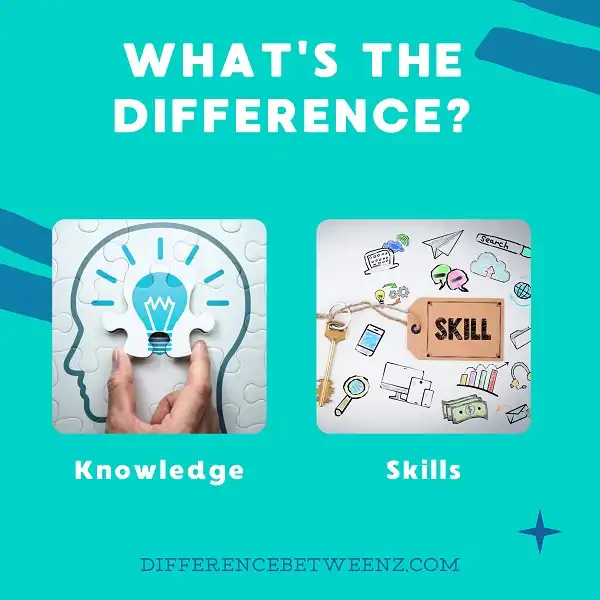Knowledge vs. Skills
What is difference between Knowledge and Skills? Two words that describe a person’s competencies – knowledge and skill! At first glance, both seem to be synonymous but if we think a bit we understand that both are very different concepts. Below this post is all about the difference between Knowledge and Skills.
Difference between Knowledge and Skills
Knowledge refers to a person learning concepts, principles and information regarding a topic (or topics) in particular through books, media communication, encyclopedias, institutions academic and other sources. Skill refers to the ability to use such information and apply it in a context. In other words, knowledge refers to theory and skill refers to the successful application of that theory in practice and obtaining the expected results.
For example, a vendor with a Master of Business Administration may have learned all the principles of marketing and sales at the business school. In your work you would know more about your company, the product line, the target market, competitors, etc. Everything mentioned above is knowledge. The transfer of that knowledge to create a successful sales strategy and to be able to reach those sales targets is the ability of the person.
Trial and error methods are a great way to increase your skills. Sometimes, certain skills are inherent in a person. For example, some people are born as carpenters. But skills can only take a person to a certain level. To advance, it is necessary that the person also acquires knowledge. For example, while a person may be good at carpentry, acquiring a bachelor’s degree in engineering could do wonders with that person’s skills. In the same way, some people may have theoretical knowledge but may not be able to use it to perform a task.
From a philosophical perspective, knowledge is intangible but skills can be made tangible by applying those skills to a context and obtaining the desired result.
In addition, theoretical knowledge can be shared with other people. Some skills can never be transferred to other people. For example, a good car mechanic can immediately know the problem of a car by the intuition that he or she has built for years when repairing different cars. The same auto mechanic may not be able to transmit that intuition to an apprentice.
Summary:
- Knowledge refers to theoretical information acquired on a topic, while the skill refers to the practical application of knowledge.
- Knowledge can be learned, while the skill requires practical exposure and can also be innate.
- Finally, both knowledge and skill are necessary to master a field of study.


